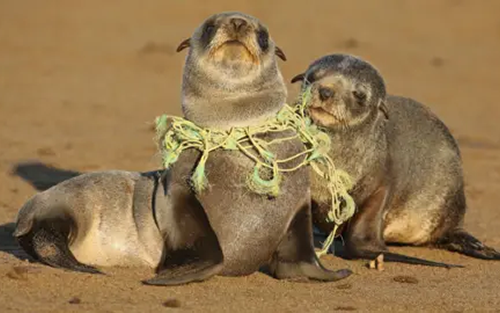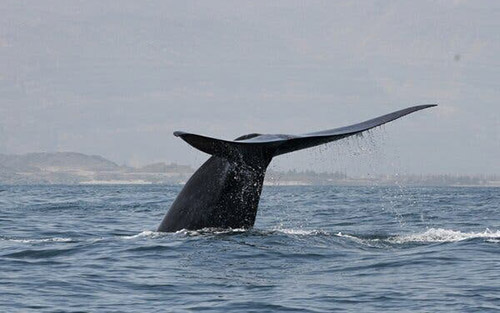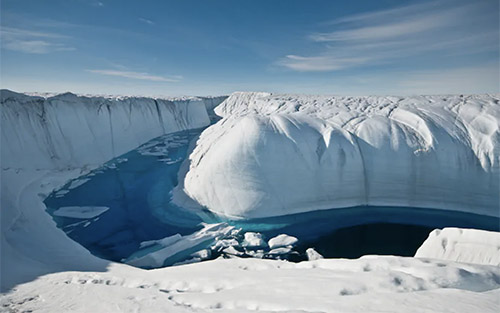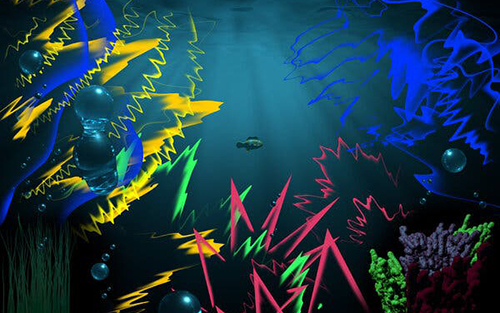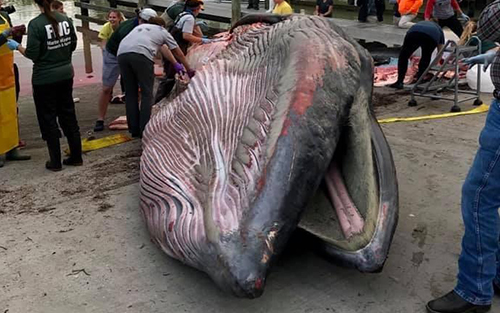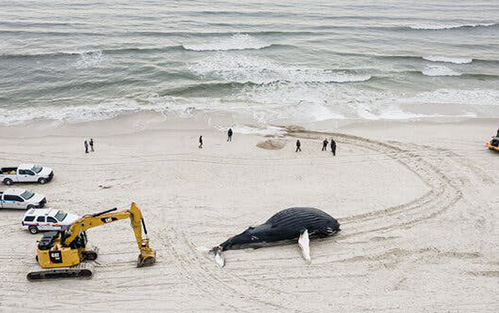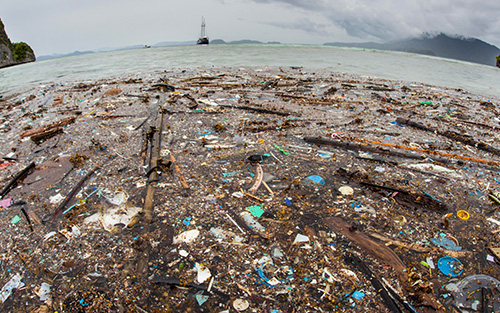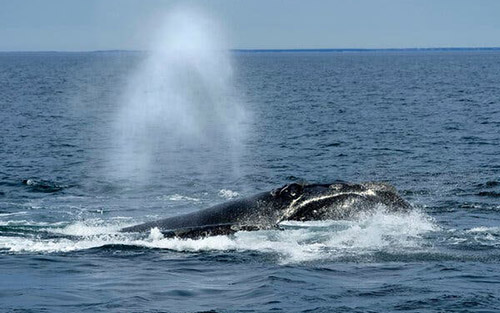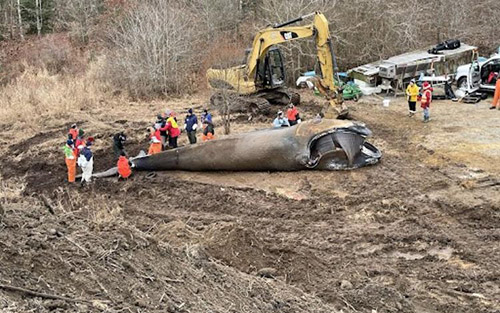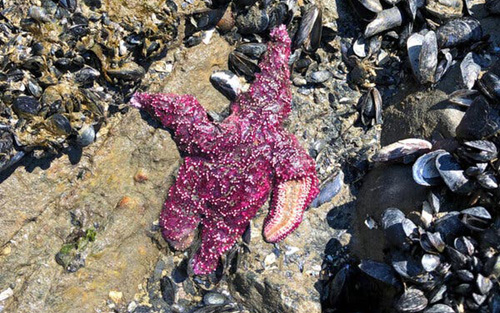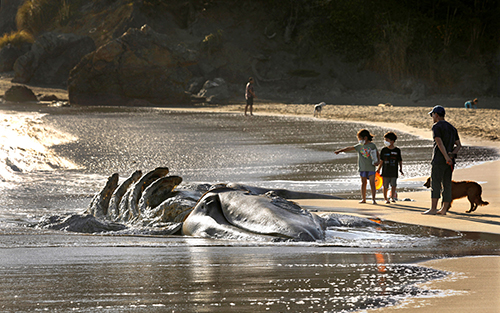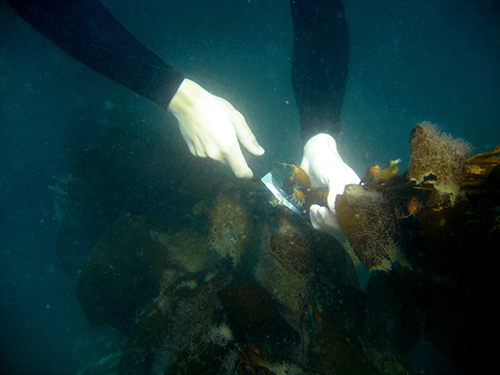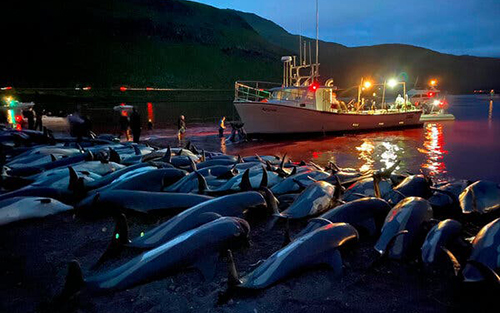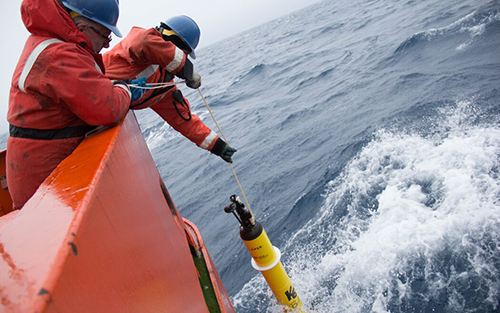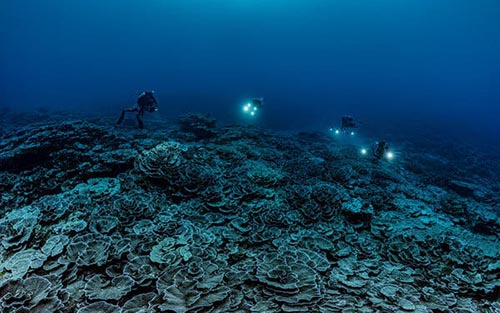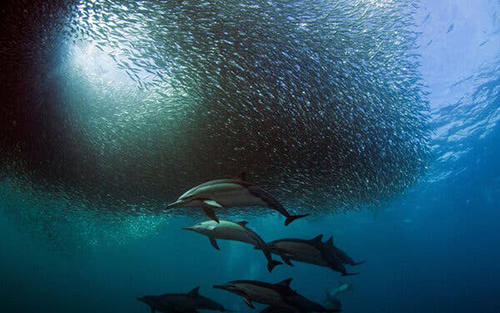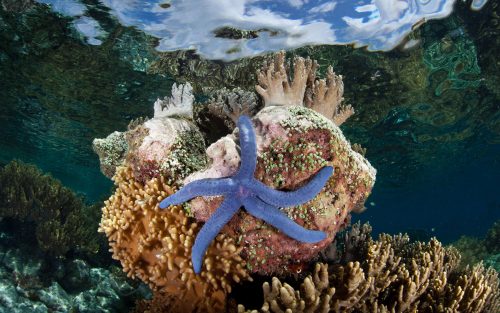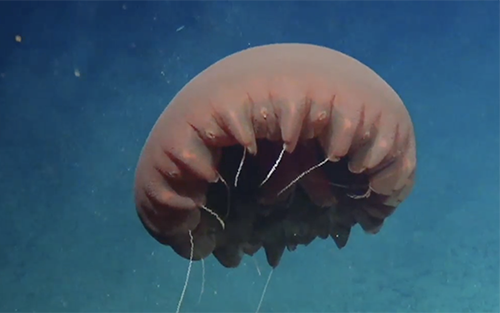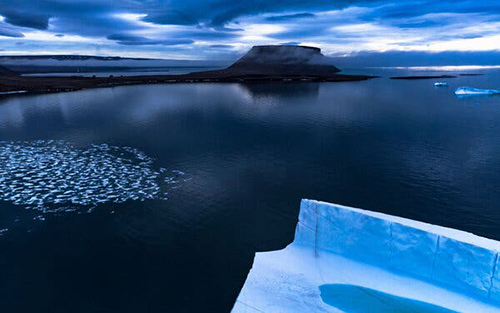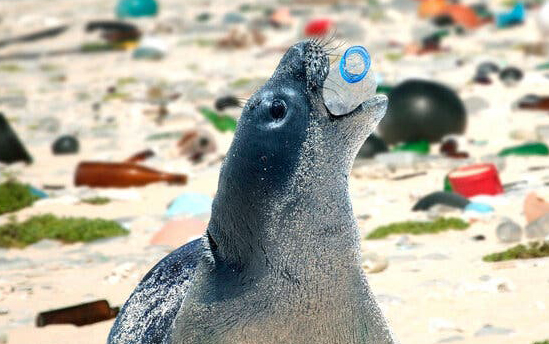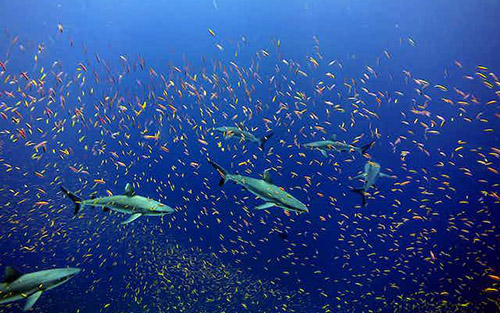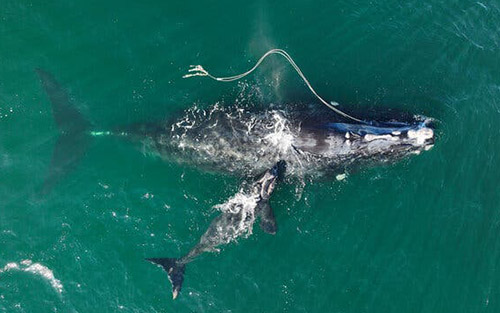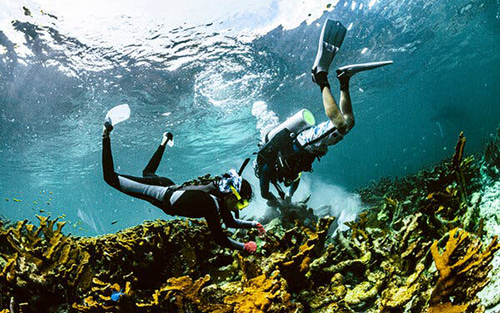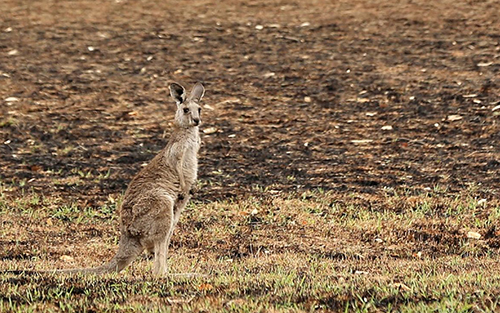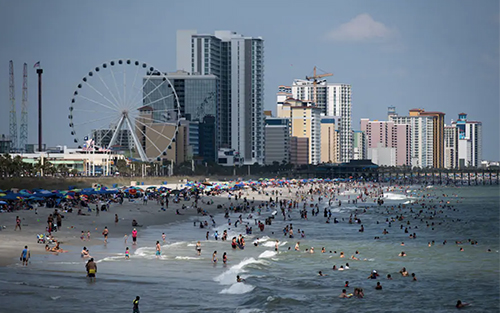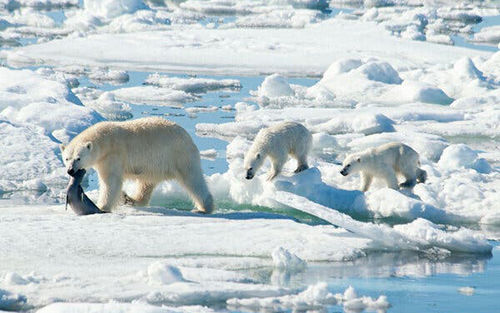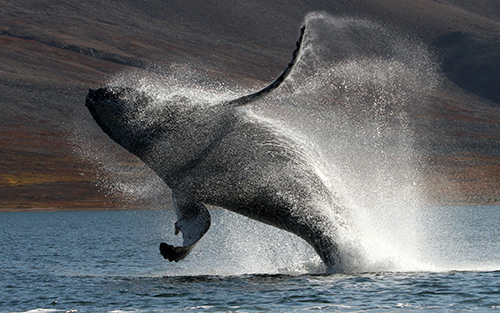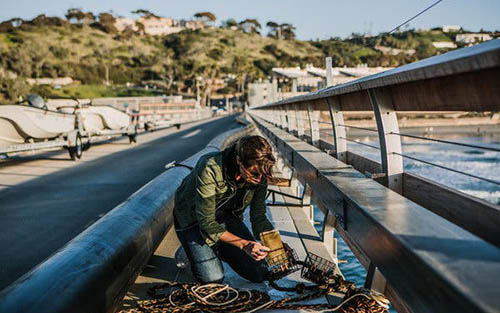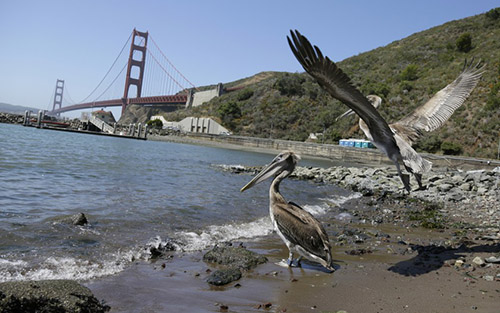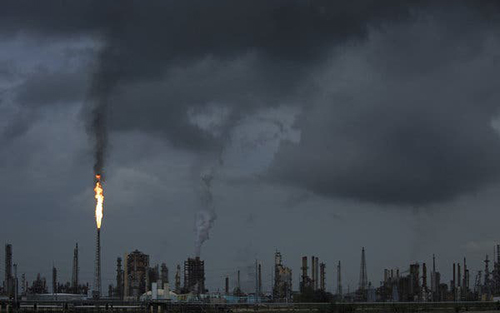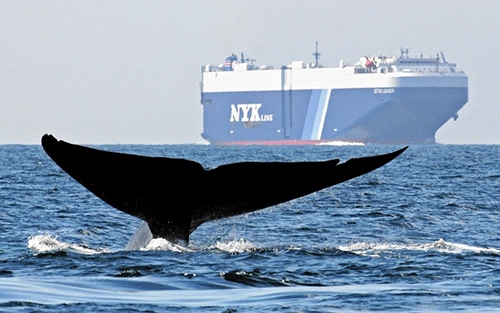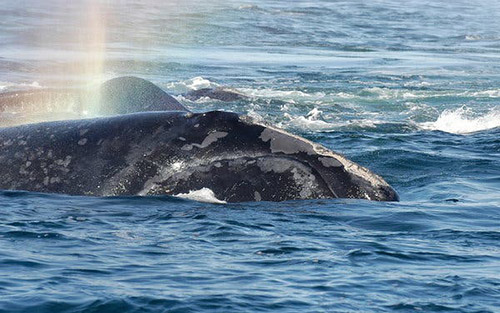Welcome to our news edit of interesting, pertinent articles. We encourage you to read, learn and share.
"It's a really important reminder that plastic pollution does pose an existential threat to ocean wildlife,"
https://www.bbc.com/news/articlesA marine heat wave in the Pacific Ocean that began a decade ago killed some 4 million common murres in Alaska, researchers say.
www.washingtonpost.com/climate-environment/2024/12/12An extreme heat wave off California’s coast seemed like an anomaly 10 years ago. But as the ocean warms, the catastrophe may be a glimpse of the future.
www.nytimes.com/2024/12/01/climate/california-farallones-ocean-warmingResearchers have discovered a kind of “sperm whale phonetic alphabet” embedded in the strings of “click” sounds the whales use to communicate and hunt.
www.washingtonpost.com/science/2024/05/07/sperm-whaleScientists and officials spent days at sea searching for vaquitas, shy porpoises threatened by fishing gear.
www.nytimes.com/2024/06/11/climate/vaquita-porpoise-surveyResearchers said that the blue whale song that crackled through the team’s underwater recordings was unlike any they had heard.
www.nytimes.com/2020/12/23/science/blue-whales-indian-oceanAnthropogenic noise is becoming unbearable for undersea life.
www.nytimes.com/2021/02/04/science/ocean-marine-noise-pollutionJust 50 or so remain, eking it out in the Gulf of Mexico off the Florida coast.
www.nytimes.com/2021/03/06/opinion/discovery-whale-extinctionConserving marine areas would not only safeguard imperiled species but sequester vast amounts planet-warming carbon dioxide, too.
www.nytimes.com/2021/03/17/climate/climate-change-oceansAnother humpback whale was spotted dead late Monday, floating near a shipping channel between New York and New Jersey, the 13th whale found in the two states in three months.
www.nytimes.com/2023/02/28/nyregion/east-coast-whale-deathsA lyrical meditation on our most insidious creation.
www.hakaimagazine.com/features/the-haunting-nature-of-plastics/With a rope wrapped around it off the coast of Martha’s Vineyard, Mass., a rare event that had scientists worrying about the future of the critically endangered species with about 360 remaining animals.
https://www.nytimes.comEndangered North Atlantic right whales are approaching extinction.
https://www.fisheries.noaa.govAn early estimate points to a huge die-off along the Pacific Coast, and scientists say rivers farther inland are warming to levels that could be lethal for some kinds of salmon.
www.nytimes.com/2021/07/09/climate/marine-heat-waveIs it a sign of oceans in peril?
www.latimes.com/projects/gray-whale-deathsThe population of kelp forests, which help clean the air, has fallen dramatically. That has environmentalists worried.
www.washingtonpost.com/climate-solutions/2021/07/05/kelp-forests-destroyed-sea-urchins/Florida spring breakers fight for their right to party with huge brawl erupting on the beach
www.dailymail.co.uk/news/article-13185803/What-crackdownThe Images Changed the Way I See the World
www.nytimes.com/2024/04/22/opinion/earth-day-octopus-teacherEven Hunting Supporters Were Upset.
www.nytimes.com/2021/09/15/world/europe/dolphins-killed-faroe-islandsWilder winds are altering currents. The sea is releasing carbon dioxide. Ice is melting from below.
www.nytimes.com/interactive/2021/12/13/climate/antarctic-climate-change.htmlThe reef, which resembles roses is just under two miles long and is in “pristine” condition.
https://www.nytimes.com/2022/01/20/science/tahiti-coral-reef.htmlA new study finds that if fossil fuel emissions continue apace, the oceans could experience a mass extinction by 2300. There is still time to avoid it.
https://www.nytimes.com/OceanExtinctions“The decline of coral reefs is accelerating so quickly that we may live to see the end of them.”
www.nybooks.com/articles/2022/03/24/in-hot-water-tim-flannery-coral-reefs/Mining a Remote Ecosystem
www.nytimes.com/interactive/2022/08/29/world/deep-sea-riches-mining-nodulesThe warming at the top of the globe, a sign of climate change, is happening much faster than previously described.
www.nytimes.com/2022/08/11/climate/arctic-global-warmingTwenty-four countries and the E.U. have agreed to create three marine parks, which would ban fishing and other industrial activity. But to become a reality, China must also agree. – By John F. Kerry
www.nytimes.com/2020/10/26/opinionThese Items in Your Home Are Harming America’s Sea Animals
www.nytimes.comand what doesn’t work
theconversation.com/how-you-can-help-protect-sharksDon’t Eat Lobster, Watchdog Group Says
www.nytimes.com/2022/09/13/science/lobsters-right-whales-maineIn an unusual experiment, a team of locals rushed in protect the Mexican reef against hurricanes and repair the devastated corals, piece by piece.
www.nytimes.comThe world is losing its mammals, birds, amphibians, reptiles and fish, and with them, the security of ecosystems that have supported humanity since it first emerged.
www.bloombergquint.comTrump ’s plan to drill off the Atlantic Coast is on the brink of collapse; a court development Thursday blocked the first steps to offshore oil and gas exploration.
www.washingtonpost.com/climate-environment/2020/10/01/offshore-drilling-atlantic/By century’s end, polar bears worldwide could become nearly extinct as a result of shrinking sea ice in the Arctic if climate change continues unabated, scientists said.
www.nytimes.com/2020/07/20/climate/polar-bear-extinctionAn alarming number of humpbacks are getting entangled in fishing gear that cut into their flesh and often led to death.
www.latimes.com/california/story/2020-01-27/crab-fishing-whale-entanglement-study“They’re affecting the ecosystem in ways we’re not aware of,” Dr. Deheyn said.
www.nytimes.com/2020/04/06/science/microfibers-plastics-ocean-biology.htmlCourt decision leaves in place vital protections for the nation’s oceans, rivers, lakes
https://earthjustice.org/news/press/2020/decision-on-supreme-court-clean-water-caseCan the long-lost abalone make a comeback in California?
https://www.latimes.com/projects/california-abalone-species-recovery/A scientific review of 52 studies recently concluded that humans on average consume a credit card’s worth of microplastic each week.
latimes.com/environment/story/2019-10-02/california-microplastics-ocean-studyClimate change is severely straining the world’s oceans, creating profound risks for coastal cities and food supplies, a U.N. report finds.
www.nytimes.com/2019/09/25/climate/climate-change-oceans-united-nations.htmlCountries agreed to rein in emissions in an effort to avert climate catastrophes. They've failed, according to the latest United Nations report.
www.nytimes.com/2019/11/26/climate/greenhouse-gas-emissions-carbon.htmlIn the Santa Barbara Channel, an underwater sound system tries to keep whales and ships apart
www.latimes.com/california/story/2019-08-14The North Atlantic right whales all were found in the Gulf of St. Lawrence recently, dealing a setback to the shrinking population.
www.nytimes.com/2019/06/26/science/right-whale-death-endangered-species.html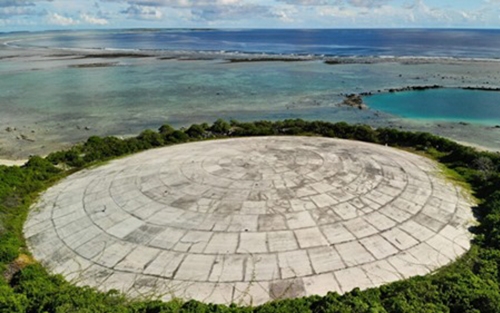
Where the United States entombed waste from nuclear testing almost four decades ago, contamination is spreading from the site’s tainted groundwater into the ocean and the food chain.
www.latimes.com/science/environment/la-me-marshall-islands-dome-is-leaking-radiation-20190528-story.html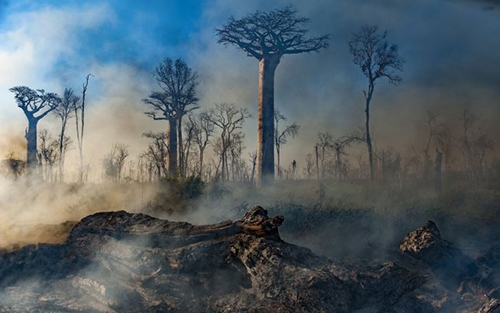
Experience our planet's natural beauty and examine how climate change impacts all living creatures in this ambitious documentary of spectacular scope.
www.ourplanet.com/en/“One Planet” appeals to the sense of wonder as viscerally as any of its predecessors, but to a purpose. Here is this beautiful, rare thing, each episode says. It didn’t used to be rare! But it is now. And here is how we’re responsible. And here is a tangible thing we might do to fix it. The arc of each installment runs from beauty to loss to a concrete, hopeful example of a battered ecosystem that’s recovered.
www.nytimes.com/arts/television/our-planet-netflix-review.htmlOn Rennell, an impoverished Pacific island, mining had already scarred the land. Now an oil spill has polluted the water and threatens a World Heritage site.
www.nytimes.com/world/asia/oil-spill-rennell-mining-solomons.htmlTime may be running out for California’s most infamous fish.
Despite a decades-long rescue effort, the tiny delta smelt appears closer than ever to vanishing from its only natural home, the Sacramento-San Joaquin Delta.
Now, some worry it won’t be long before the only place the once-abundant species exists is within the confines of an artificial tank.
enewspaper.latimes.com/infinity/article_share.aspxGlobal warming has caused such extensive damage to the Great Barrier Reef that scientists say its coral may never recover. According to a study published Wednesday in the journal Nature, baby coral in Australia's Great Barrier Reef have declined by 89% due to mass bleaching in 2016 and 2017.
www.cbsnews.com/news/great-barrier-reef-dying-climate-change-caused-decrease-in-new-coral-study-says/The Thwaites Glacier on Antarctica’s western coast has long been considered one of the most unstable on the continent. Now, scientists are worried about the discovery of an enormous underwater cavity that will probably speed up the glacier’s decay.
www.nytimes.com/climate/thwaites-glacier-antarctica-cavity.htmlEarth’s oceans had their warmest year on record in 2018, a stark indication of the enormous amount of heat being absorbed by the sea as greenhouse gas emissions continue to rise, scientists reported Wednesday.
The analysis by an international team of scientists confirms that the oceans are heating up much faster than previously recognized and that the pace of warming has accelerated sharply since the 1990s.
https://enewspaper.latimes.com/infinityGreenland’s enormous ice sheet is melting at such an accelerated rate that it may have reached a “tipping point” and could become a major factor in sea-level rise around the world within two decades, scientists said in a study published on Monday.
www.nytimes.com/climate/greenland-ice.htmlScientists say the world’s oceans are warming far more quickly than previously thought, a finding with dire implications for climate change because almost all the excess heat absorbed by the planet ends up stored in their waters.
www.nytimes.com/climate/ocean-warming-climate-change.htmlPersistent warming in the Arctic is pushing the region into “uncharted territory” and increasingly affecting the continental United States, scientists said Tuesday.
The Arctic has been warmer over the last five years than at any time since records began in 1900, the report found, and the region is warming at twice the rate as the rest of the planet.
www.nytimes.com/climate/arctic-warmingIn the video, Ms. Gill zoomed in on a six-foot-long, stiff, glistening dolphin carcass, its mouth frozen into a toothy smile. The creature was one of more than 20 dead bottlenose dolphins that had washed up on local beaches in recent days.
www.nytimes.com/business/media/climate-change-news-media-red-tide-florida.htmlThe underwater forests — huge, sprawling tangles of brown seaweed — are in many ways just as important to the oceans as trees are to the land. Like trees, they absorb carbon emissions and they provide critical habitat and food for a wide range of species. But when climate change helped trigger a 60-fold explosion of purple urchins off Northern California’s coast, the urchins went on a feeding frenzy and the kelp was devoured.
www.nytimes.com/climate/kelp-climate-change-california.htmlHundreds of turtles, dolphins and whales become stranded every year on Thailand’s beaches after plastic impedes their mobility or clogs their insides. Some are lifeless on arrival, biologists say, and their deaths barely register with the public.
www.nytimes.com/world/asia/thailand-whale-plastics-pollution.htmlA worldwide catastrophe is underway among an extraordinary group of birds — the marathon migrants we know as shorebirds. Numbers of some species are falling so quickly that many biologists fear an imminent planet-wide wave of extinctions.
www.nytimes.com/interactive/opinion/shorebirds-extinction-climate-change.htmlSomething ominous was happening in the turquoise waters of Sepetiba Bay, a booming port outside Rio de Janeiro. Beginning late last year, fishermen were coming across the scarred and emaciated carcasses of dolphins, sometimes five a day, bobbing up to the surface.
www.nytimes.com/world/americas/brazil-dolphins-sepetiba-bay.htmlIn the Pacific Ocean between California and Hawaii, hundreds of miles from any major city, plastic bottles, children’s toys, broken electronics, abandoned fishing nets and millions more fragments of debris are floating in the water — at least 87,000 tons’ worth, researchers said Thursday.
www.nytimes.com/climate/great-pacific-garbage-patch.htmlAfter years of effort, scientists at the Fish and Wildlife Service had a moment of celebration as they wrapped up a comprehensive analysis of the threat that three widely used pesticides present to hundreds of endangered species, like the kit fox and the seaside sparrow.
READ MORE: https://www.nytimes.com/2019/03/26/us/politics/endangered-species-david-bernhardt.html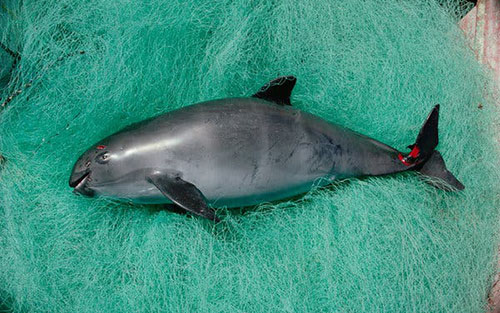
Less than two dozen of the tiny porpoises remain in the wild. But there’s plenty the government can do to avert its extinction.
https://www.nytimes.com/2019/03/19/opinion/mexico-porpoise-extinction.htmlA beached whale found in the Philippines on Saturday died with 88 pounds of plastic trash inside its body, an unusually large amount even by the grim standards of what is a common threat to marine wildlife.
https://www.nytimes.com/2019/03/18/world/asia/whale-plastics-philippines.html